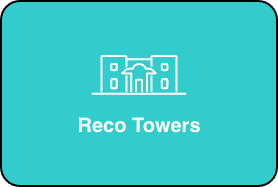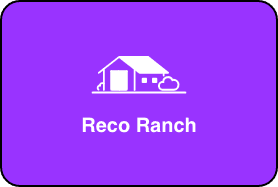Top 5 Challenges and Solutions in Sober Living Florida

Sailing the Recovery Seas
Charting Your Course: Understanding Florida Sober Living
Embarking on a recovery journey in Florida introduces individuals to a unique landscape of sober living opportunities. Delray Beach, known for its active recovery community, offers a variety of sober living homes and transitional housing programs designed to support individuals battling substance use disorders. These sober living residences focus on providing a stable environment where residents can engage in peer support, participate in house meetings, and adhere to structured recovery protocols. Understanding the offerings and dynamics of Florida sober living helps individuals make informed decisions in their path to sobriety.
Sober living residences in Delray Beach stand out due to their commitment to fostering community-driven recovery. The emphasis on supportive environments creates a sense of accountability and camaraderie among residents, crucial for overcoming addiction hurdles. With structured programs and access to resources like 12-step meetings and treatment options, these homes become beacons of hope for many seeking sobriety. The integration of alumni programs and house manager oversight further solidifies the framework for successful rehabilitation in Florida.
Navigating the Waters: Common Barriers in Sober Living
Despite the supportive nature of sober living communities, barriers such as relapse triggers and lack of access to comprehensive treatment programs pose significant challenges. Substance use rehabilitation requires overcoming addiction hurdles that often arise from environmental pressures and stress. In Delray Beach, individuals may encounter difficulties in maintaining long-term recovery due to external stressors or insufficient peer support networks. Implementing robust sober community support networks and emphasizing individualized recovery housing support are essential to mitigating these challenges.
Another barrier is the financial strain associated with maintaining residency in sober living homes. Financial obstacles can impede access to quality treatment programs and create barriers to achieving a stable sober life. Addressing these economic challenges through flexible sober housing options and exploring government assistance programs can significantly enhance the recovery experience. By focusing on sustainable recovery housing solutions, Florida can continue to improve its standing as a leader in addiction recovery dynamics.
Winds of Change: How Sober Homes Support Recovery
Sober homes in Florida operate under the premise of support and transformation. By offering transitional housing near Palm Beach County, these residences provide a safe haven for individuals in recovery. Residents benefit from structured routines and the camaraderie of a shared recovery journey. This environment is conducive to developing personal accountability and reinforcing sobriety through shared experiences and goals. The supportive environment ensures that each resident can navigate the complexities of recovery while feeling empowered by their community.
The role of programs like RECO Institute’s is crucial in facilitating change. Through Delray Beach addiction recovery solutions, individuals learn to harness peer support and transition strategies effectively. The implementation of targeted recovery programs and intensive outpatient therapies reinforces the stability and progression in a sober lifestyle. By focusing on individualized treatment and fostering community-driven growth, sober homes in Florida remain pivotal in overcoming the intricacies of addiction recovery barriers.
1 – The Wayfaring Wanderers of Delray Beach
The Essence of Sober Living in Delray Beach
The heart of sober living in Delray Beach beats with a rhythm of resilience and renewal. Known for its vibrant recovery community, the city offers a spectrum of sober living homes finely attuned to the needs of individuals battling substance use disorders. These residences are more than just transitional housing programs; they are sanctuaries of healing where personal accountability and communal support take center stage. The essence of Delray Beach’s sober living homes lies in their commitment to providing a stable environment, facilitated through structured routines and house meetings. Residents find themselves surrounded by peers who are similarly anchored in their recovery journeys, fostering a camaraderie that propels everyone toward a common goal.
With a keen focus on sustained recovery, these sober living homes integrate a myriad of support structures essential for long-term sobriety. Alumni programs play a pivotal role in maintaining connections and providing ongoing guidance. These programs, along with access to treatment options and 12-step meetings, ensure that each resident is equipped with the tools needed for recovery resilience. The synergy of these elements creates a supportive environment that stands as a beacon of hope for those seeking a new chapter in life, free from the chains of addiction.
Substance Use Rehabilitation: A Promising Voyage
Substance use rehabilitation in Delray Beach is akin to setting out on a promising voyage toward transformation. Amidst the sun-kissed shores, individuals find an optimal setting for change, enhanced by an array of Florida rehab community support systems dedicated to promoting recovery success. The community fosters a sense of belonging, ensuring that those on the path to sobriety do not feel alone. This network is critical in addressing the unique challenges faced during the sober transition and offers a supportive environment conducive to healing.
Delray Beach’s approach to substance use rehabilitation involves personalized strategies tailored to meet individual needs. Whether through residential treatment options or outpatient programs, the focus is on cultivating a sustainable sober life. By leveraging targeted resources like alumni programs and group homes, residents receive a multifaceted range of support tools. These instruments, combined with the positive reinforcement found within the community, make Delray Beach a sought-after destination for those seeking substantive lifestyle changes.
Delray Beach Recovery Solutions: Navigational Tools
Recovery solutions in Delray Beach are diverse and adaptable, serving as navigational tools for individuals charting their course toward sobriety. The city provides a robust framework of support services, each designed to aid the journey from addiction to recovery. Central to these solutions are the sober transition strategies in Florida, which offer a solid foundation for overcoming the hurdles of addiction recovery. These strategies emphasize the importance of tailored care, recognizing that each person’s journey is unique and requires a bespoke approach.
Operational within Delray Beach are numerous treatment programs that offer intensive and meticulous care. For instance, intensive outpatient programs provide flexibility while maintaining the integrity of the therapeutic process. This approach ensures that individuals can continue their recovery without disrupting their daily lives. Moreover, the inclusion of peer support and group homes enhances the recovery dynamic, as these elements serve as vital touchpoints for encouragement and accountability.
Anchored by the guiding principles of hope, community, and personalized care, Delray Beach’s recovery solutions act as a compass, directing individuals to a future filled with possibilities and sobriety. The strategic integration of support networks, comprehensive care services, and holistic recovery programs positions Delray Beach as a transformative harbor for those seeking to embark on a profound journey of change.
2 – The Harbor of Transformation
Sober Living Homes: Anchors in the Storm
In the journey to sobriety, sober living homes offer steadfast support, representing reliable anchors amidst the turbulent storms of recovery. These homes in Florida are designed to provide a stable environment where individuals recovering from substance use disorders can rebuild their lives. Emphasizing a structured lifestyle, residents engage in house meetings, abide by curfews, and participate in regular drug screenings to ensure accountability and promote a disciplined path toward recovery. Such structures create a sense of normalcy and order, enabling individuals to focus on long-term recovery goals.
Moreover, the communal nature of sober living residences fosters peer support-an invaluable element in overcoming addiction hurdles. The shared experience cultivates a community of understanding and empathy, allowing residents to share their struggles and triumphs. With access to supportive environments, individuals find themselves better equipped to face life’s challenges sans substance reliance. Sober living homes, acting as sanctuaries of healing, significantly contribute to achieving sustained sobriety in Florida’s sober community.
Transitional Housing: Ports of Call for Healing
Among the key pillars of successful recovery are transitional housing options, strategically placed as ports of call for individuals in the early stages of healing. Recognizing the importance of robust transitional housing near Palm Beach County, Florida has curated programs that bridge the gap between residential treatment and independent living. These programs focus on creating a supportive, drug-free environment where residents can focus on their recovery journey without the external pressures of everyday society.
Transitional housing plays a pivotal role in nurturing personal growth and development. By providing individuals with a safe space to apply therapeutic strategies and life skills, these programs facilitate the gradual reintegration into society. They also offer residents access to resources such as counseling, job training, and educational opportunities, promoting a holistic approach to recovery. Through guidance and structured support, transitional housing empowers residents to rebuild their lives, fostering resilience and independence.
Charting a Course: Navigating Housing Programs
Navigating the array of housing programs available in Florida can feel daunting; however, understanding these options provides a vital compass for those seeking sobriety. From halfway houses to comprehensive sober housing programs, each option presents unique offerings and benefits. Selecting the suitable program necessitates evaluating individual needs, treatment goals, and personal preferences to ensure alignment with one’s recovery journey.
Programs like RECO Institute’s role in recovery near Florida stand out by offering specialized treatment frameworks that cater to diverse pathways to recovery. It’s crucial for individuals to thoroughly research and communicate with program administrators to ascertain which sober living residence aligns best with their recovery strategies. Collaborating with professionals in the field can further aid in making informed decisions, ensuring that the chosen environment maximizes opportunities for growth and healing.
In Delray Beach, leveraging extensive community networks and alumni programs can also enhance the recovery experience, providing an ongoing support system. By understanding and navigating these sober living options, individuals are better positioned to sail through the recovery seas, steering toward a horizon marked by sobriety and renewal.


3 – The Lighthouse of Peer Support
The Beacon of 12-Step Meetings
In the realm of sober living, 12-step meetings serve as a guiding beacon. These meetings provide crucial support for individuals navigating their recovery journey. Crafted to complement the frameworks of sober living homes, 12-step meetings foster a sense of community among members. This collective environment helps reinforce personal sobriety goals through shared experiences and accountability. Participants often find that the solidarity and encouragement they receive play a vital role in preventing relapses and promoting long-term recovery.
The effectiveness of 12-step meetings cannot be overstated, as they help attendees build resilience and self-esteem. These meetings provide a structured setting where individuals can confront their struggles with substance use disorders openly. By engaging in this community, members learn coping mechanisms that are instrumental in maintaining sobriety. The shared commitment to sobriety and the ongoing support found within 12-step meetings continue to illuminate the path for those seeking recovery.
Shining Light on Group Homes and Support Networks
Group homes play an essential role as support networks for those seeking sober living near Delray Beach. These communal living arrangements offer stable environments where people can work towards sobriety. By integrating structured routines and peer support, group homes enhance resident accountability and provide a safe haven for recovery. Community dynamics within these homes foster empathy and understanding, enabling individuals to share their challenges and triumphs in a supportive setting.
The synergy between group homes and support networks strengthens the foundation of recovery for residents. This interconnectedness is critical for developing resilience and coping skills necessary for overcoming addiction. In addition to daily interactions among peers, house managers and counselors offer guidance and oversight, ensuring that residents remain on track with their recovery goals. The collaborative environment of group homes empowers individuals to reclaim control over their lives in a sheltered, nurturing space.
The Guiding Light: Peer Support Strategies in Florida
Peer support strategies offer a guiding light for individuals overcoming addiction hurdles in Florida. Emphasizing shared experiences and mutual aid, these strategies provide crucial assistance in navigating the complexities of sober living. Initiatives focused on peer support for recovery near Delray Beach highlight the effectiveness of companionship and shared responsibility in promoting sobriety among participants.
One of the key benefits of peer support strategies is their ability to tailor recovery efforts to individual needs while maintaining a community-centered approach. By fostering connections and mutual accountability, individuals gain motivation and increased self-awareness, which are indispensable in the recovery process. Additionally, peer support initiatives often include mentorship programs, where individuals further along in their recovery can offer advice and encouragement to newcomers.
Through these strategies, Florida’s sober living programs continue to evolve, adapting to the unique demands of diverse recovery journeys. Peer support serves as an indispensable resource, enhancing the overall landscape of sober living within the state and offering individuals a helping hand as they navigate the path to sustained sobriety.
4 – The Compass of Community
The Role of Alumni Programs in Guiding Recovery
The role of alum programs in guiding recovery cannot be overstated. Alumni programs serve as a significant component of the recovery journey in Florida, providing long-term support to those who have completed sober living programs. By maintaining an active connection with residents even after their transition from the sober living house, alumni programs bridge the gap between structured recovery environments and independent living. This ongoing connection aids in preventing relapses and fostering a sense of belonging and accountability.
In such programs, former residents often return as mentors, sharing insights from their own recovery experiences. This mentorship component fosters not only community engagement but also personal growth for both mentors and mentees. Additionally, alumni events, workshops, and follow-up meetings ensure that past residents remain rooted in their recovery journey, benefiting from continued peer support. The increased emphasis on alumni involvement significantly enhances the chances of sustained sobriety, showcasing the indispensability of alum programs in navigating the complexities of sober living in Delray Beach.
Creating a Supportive Environment: Florida Sober Community Strategies
Creating a supportive environment hinges on effective Florida sober community strategies. These strategies are integral to the success of individuals seeking sobriety. A robust sober community provides the necessary support networks that cater to various needs of residents, facilitating a comfortable and encouraging atmosphere. This sense of community is cultivated through structured interactions, such as group therapy sessions, house meetings, and peer support networks.
In Florida, integrating different community support dynamics accelerates recovery by fostering trust and kinship among residents. House managers and counselors play pivotal roles in curating these interactions, which reinforce the principles of accountability and mutual support. By implementing these comprehensive community strategies, sober living programs offer residents a secure foundation to confront addiction challenges effectively. These strategies not only enhance individual recovery outcomes but also strengthen the collective spirit of sober residences, framing them as vital support networks in the fight against substance use disorders.
Florida Transitional Housing: Community as Compass
Florida’s transitional housing acts as a compass, guiding individuals who are maneuvering the complexities of recovery. Located strategically near community hubs, these housing programs provide a transitional phase for residents shifting from residential treatment to independent living. They offer a nurturing environment where individuals learn to apply recovery techniques in real-world scenarios without the pressures of immediate societal integration.
By focusing on structured programs that promote life skills and recovery resilience, transitional housing minimizes relapse risks. Residents are offered access to educational resources, job training, and personalized counseling, strengthening their ability to maintain a sober life. The incorporation of supportive community elements, such as alumni networks and group homes, further anchors individuals in their recovery journey. This nurturing model ensures that the transition towards independent living is smooth, structured, and supportive, illustrating how community-driven housing solutions are instrumental in orchestrating a successful sober transition in Florida. Through these coordinated efforts, individuals gain the stability needed to thrive beyond the confines of structured recovery programs.
5 – The Winds of Change: Rebuilding a Stable Life
Overcoming Addiction Hurdles: A New Horizon
Embarking on the path to sobriety in Florida presents challenges that can indeed seem daunting. Overcoming addiction hurdles necessitates a profound commitment and the right support structures. Individuals face numerous challenges, such as dealing with potential relapse triggers and navigating complex emotional landscapes. Building a new life free from substance use requires dedication and the courage to navigate these obstacles.
For those seeking relief from alcohol addiction, strategies such as peer support, structured routines, and engaging in Narcotics Anonymous meetings play a significant role in maintaining sobriety. Additionally, participation in Florida’s vibrant recovery community can offer invaluable peer support. This network helps individuals feel less isolated and more emboldened as they tackle the hurdles of addiction recovery.
Transitioning towards recovery resilience is possible through structured support, emphasizing personal accountability. By cultivating sobriety’s pillars, individuals transform challenges into opportunities for growth, striving towards a new horizon marked by clarity and well-being.
Florida Sober Transition: Remodeling Life’s Deck
The transition from addiction to sobriety can often feel akin to remodeling one’s life deck-requiring significant efforts to eliminate dysfunctional patterns and establish new stable habits. Florida’s sober transition strategies focus on structured, supportive environments that foster personal growth. Transitional housing provides the scaffolding for a safe and effective remodeling process, offering stability as residents navigate their new sober journey.
Housing programs emphasize life skills development, crucial for a sustainable sober lifestyle. Individuals learn to integrate coping mechanisms, financial management, and job training as part of their recovery path. Strategic support from alumni programs further enriches the remodeling process, offering ongoing guidance and mentorship. These components ensure that the transition to independent living is not just attainable, but sustainable.
By embracing transitional housing’s structured support, individuals gain the confidence needed to enforce lasting changes, remodeling their path towards a healthy, rewarding life free from substance dependency.
Treatment Program Challenges and Opportunities
Navigating treatment dynamics poses challenges for individuals, with opportunities closely intertwined. Treatment program challenges surface from the need to align individualized care with structured protocols. Comprehensive programs like intensive outpatient programs in Delray Beach cater to the diverse needs by offering flexibility while ensuring robust therapeutic interventions.
Opportunities within these programs lie in their ability to address specific recovery needs through targeted strategies and interventions. Whether through outpatient programs or structured aftercare, the emphasis is on cultivating resilience and overcoming addiction recovery barriers. The incorporation of varied treatment modalities ensures a holistic approach, supporting sustained recovery.
In Florida, the interplay between challenges and opportunities enhances the recovery landscape, providing a fertile ground for transformation. This dynamic framework empowers individuals to pursue sober living with an arsenal of tools, customized to their recovery journey. Through navigating these challenges, individuals uncover opportunities for personal growth, steering their lives towards sustained sobriety.


Anchoring Success
Navigating Towards a Brighter Horizon: Long-Term Recovery Strategies
When it comes to long-term recovery strategies, navigating the path to sobriety requires a comprehensive and adaptable plan. Sober living in Florida offers a myriad of supportive environments tailored to sustain recovery over time. Programs that emphasize the importance of structured routines, peer support, and alumni involvement create a foundation for sustained sobriety. The inclusion of aftercare programs for addiction recovery ensures that individuals have ongoing access to essential resources, bolstering their commitment to a sober life. By maintaining engagement in community activities and support groups, individuals enhance their resilience to relapse and strengthen their recovery journey.
Effective long-term recovery strategies must also incorporate a personalized approach. Each individual’s journey is unique, requiring tailored interventions to address specific needs and goals. Combining counseling services with support networks, such as Alcoholics Anonymous, provides a balanced framework for navigating sobriety’s challenges. These strategies collectively brighten the horizon for individuals, empowering them to live a fulfilling sober life.
Effective Course Adjustments: Overcoming Recovery Barriers
Overcoming recovery barriers often involves making effective course adjustments to maintain progress. The path to sobriety is rarely linear, and individuals must be prepared to adapt their strategies in response to emerging challenges. Whether facing potential triggers, emotional upheavals, or life stressors, having flexible recovery plans is crucial. Programs that offer Delray Beach outpatient programs provide a dynamic and supportive environment for addressing these barriers without compromising daily responsibilities.
In addition, leveraging technology and telehealth services can enhance accessibility to care, enabling individuals to receive guidance and support from professionals even when in-person meetings are difficult. By maintaining open communication with treatment providers and staying proactive about personal recovery goals, individuals can make necessary adjustments to their strategies. These course corrections ensure that recovery remains steady, paving a secure path to sustained sobriety.
Securing the Anchor: Achieving a Sober Life in Florida
Securing the anchor in sober living involves establishing a stable and supportive foundation for ongoing sobriety. Florida’s sober living residences provide the ideal backdrop for individuals to anchor their recovery journey. These homes offer structured environments where peer support and community engagement are prioritized, creating a nurturing atmosphere conducive to healing. Incorporating elements such as house meetings and alumni programs further enhances the supportive framework, allowing residents to remain grounded in their sobriety.
The key to achieving a sober life in Florida lies in harmony between personal accountability and community support. By engaging in regular sober community activities and accessing comprehensive support services, individuals can reinforce their sobriety commitment. A strategic partnership between structured living environments and self-motivation solidifies the anchor, ensuring individuals navigate the seas of recovery with confidence and resilience. As they steer towards a future marked by stability and growth, the framework of Florida’s sober living strengthens their resolve to maintain a life free from substance dependency.
Frequently Asked Questions
Question: What are some of the main challenges individuals face during their sober living journey in Florida, and how does RECO Institute address these?
Answer: Individuals in Florida often face challenges such as environmental pressures, relapse triggers, and financial constraints during their sober living journey. At RECO Institute, we offer structured recovery housing and comprehensive support programs to mitigate these hurdles. Our holistic approach includes individualized treatment options, access to peer support networks, and alumni programs like house meetings and group homes to ensure individuals have the support they need for a successful sober transition.
Question: How does RECO Institute facilitate overcoming addiction hurdles within its sober living residences in Florida?
Answer: RECO Institute is committed to overcoming addiction hurdles by providing a stable environment in our sober living residences. Our programs emphasize the importance of peer support and personal accountability, which are crucial for long-term recovery. By integrating structured routines, treatment program options, and community-driven strategies, we empower individuals to navigate their recovery journey with confidence, ensuring a supportive environment they can rely on.
Question: In the context of the blog post Top 5 Challenges and Solutions in Sober Living Florida, what specific solutions does RECO Institute offer to tackle challenges in recovery housing?
Answer: In response to the challenges highlighted in Top 5 Challenges and Solutions in Sober Living Florida, RECO Institute offers solutions such as alumni programs, transitional housing options, and comprehensive support strategies. Our focus on alumni involvement provides ongoing guidance and support, while transitional housing creates a bridge to independent living. We also emphasize personalized recovery housing support to address addiction recovery barriers, ensuring that our residents are well-equipped to face any sober living obstacles they may encounter.
Question: How does RECO Institute’s integration of 12-step meetings enhance the recovery experience for individuals dealing with substance use disorders?
Answer: At RECO Institute, integrating 12-step meetings into our recovery framework plays a vital role in enhancing the recovery experience for those with substance use disorders. These meetings foster a sense of community and accountability, offering participants a platform to share experiences and support one another. By building resilience and self-esteem, 12-step meetings complement our peer support networks, reinforcing long-term sobriety and providing a structured setting to confront addiction challenges.
Question: What role does transitional housing play in the RECO Institute model to facilitate a successful sober transition in Florida?
Answer: Transitional housing is a cornerstone of the RECO Institute model, providing essential support for a successful sober transition in Florida. These programs offer a safe, structured environment where individuals can gradually adjust from residential treatment to independent living. By focusing on life skills, job training, and access to educational resources, our transitional housing empowers residents to face the challenges of sober living with confidence and resilience. This supportive framework ensures a smoother transition, enhancing the chances for a sustainable, sober life.















